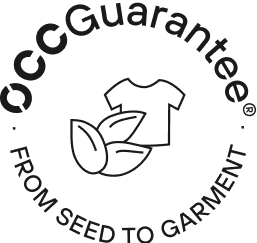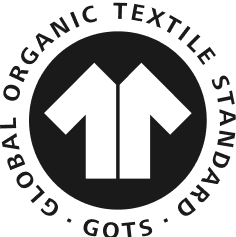- 18 January, 2024
By Santi Mallorquí, CEO of Organic Cotton Colours.
January 2015 marked the first year we obtained cotton fiber from our own network of farmers in sufficient quantities to export and spin in Barcelona. It was a complex process as we had groups of farmers spread across 3 states: Piauí, Paraíba, and Pernambuco, with different communities within each state and a total of 150 farmers collectively.
Effective transport planning was crucial to optimize costs, although at that moment, our priority was to manage it within just twelve days—the time I would spend in Brazil. I wanted to return with the certainty that everything had been resolved correctly.
The cotton was stored in a warehouse with its large access door blocked, and there was no physical way to remove the bales without tearing down a wall. This was just the beginning of a series of challenges we had to overcome with great enthusiasm.
The bales weighed 70 kg and were challenging to handle. Their volume did not allow for a 60-meter journey on foot to the truck. We had to borrow a loading cart from a supermarket to move the bales with some dignity and hire a group of young people to handle the material and load it onto the transport that would take it to the port, where it could be handled with proper forklifts.
The next challenge was to issue all the invoices correctly to hire both truck transport and container loading and dispatch within the established deadlines from the Port of Suape, Pernambuco. We spent four days locked in an office. Every two hours, a new obstacle emerged, altering our planned agenda—moments of nervousness and desperation. In the following photo, you’ll see the legal path of the invoices that must be issued for a proper export. The necessary legal requirements are not easy to obtain, requiring the hiring of a specialized company to create a plan (as shown in the photo) and thus avoid surprises like the ones we encountered the first time.
I especially remember Gilceu, an independent truck driver with his truck hired by the transport company to take the last material to the port cooperative. At seven in the evening, when we managed to have the truck well-loaded, the transport company canceled its contract by phone. We heard Gilceu shout furiously. He explained what was happening, and reluctantly, we had to empty the entire load and hire another company.
Although the truck belonged to a family member, we needed a transport company to hire it for the service. Once again, with much faith and pulling some strings, we managed to get a local company to agree to hire external transport.
Once all the cotton was in the duty-free port where the container loading took place, we faced various documentation problems that delayed the departure. The result was that we had to split the total load into 3 containers that were loaded on different days. Nevertheless, they traveled on the same ship, but failing to consolidate the cargo increased transportation costs significantly.
Undoubtedly, we learned from this “first time,” and I would like to highlight the invaluable help received from Maysa Gadhela in this initial export of the OCCGuarantee Brasil project.
Following the events of the last few days, we saw that it was essential to have our own subsidiary registered in Brazil, and we began the procedures for its creation. If this subsidiary could handle the export, it would simplify the documentation processes, and we wouldn’t depend on an external company for any hiring we needed in the country.
Initially, this process was supposed to be resolved in 6 months, or so we were assured by the company hired to carry it out… I won’t narrate the chronicle of events for its creation because it makes me nervous! Finally, on my trip in June 2017, we already had the company duly registered and legally authorized to operate in Brazil.
Another loose end was the incorporation of the “Mocó” variety for all the white cotton we are cultivating. I insisted on this project from the beginning, and although it took longer than imagined, it is now a reality.
This variety, belonging to the “gossypium arboreum” family, requires less water for its growth; moreover, the plant abundantly produces for five years or more. It does not need to be replanted, so it also saves on the labor involved. But the most important aspect is the quality of the fiber itself: 38 mm in length, providing us with finer and more resistant threads and, consequently, fabrics of higher quality.
This variety is the so-called “white gold” of the Brazilian Northeast. It holds an emotional bond with all the farmers because until the 80s, it was the most coveted cotton, a symbol of northern pride, wealth, and stability.
Sadly, it disappeared from the market due to the “bicudo” plague identified for the first time in Brazil in 1983, and since then, it gained prominence each year, devastating numerous cotton crops until a few years ago when its expansion could be controlled with preventive measures.
Looking back, I realize that all the setbacks we have faced have been crucial for the development of the OCCGuarantee project. The path we have taken has given us experience in the country. Today, I can only view the future with optimism! We have a great team of people who, like me, are super motivated to make this project succeed.
As I always tell the farmers, the most important thing is that we are able to offer real solutions to as many brands in the growing sustainable fashion market.














